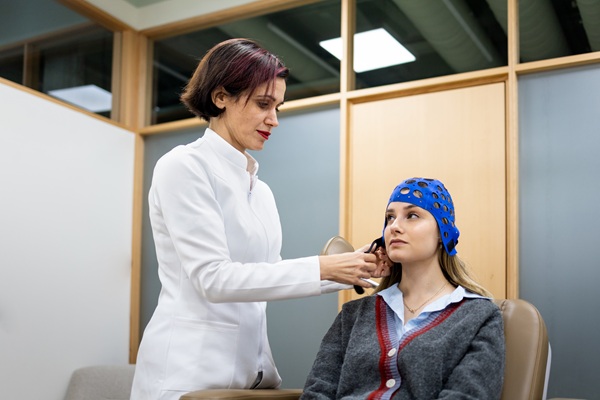What to Expect During a TMS Therapy Session

When antidepressants and psychotherapy are not enough to relieve symptoms of depression, patients can consider alternative options like transcranial magnetic stimulation (TMS) for relief. TMS is safe and effective. Aside from being non-invasive, it is non-systemic, which means that it does not get into the bloodstream like medications since it is not administered orally. If you have been recommended for a TMS therapy session, it can be easy to feel nervous about the unknown. This article covers what to expect during the procedure.
Overview of the treatment session
For TMS therapy, patients will undergo a session five days per week continuously for four to six weeks. Each session lasts between 20 to 50 minutes. Patients are expected to visit the office for the procedure, which is handled by a TMS technician or physician. A magnetic coil, which has the same strength as an MRI machine, is placed on the patient's head. Since the procedure creates a magnetic field, patients will be asked to take off magnetic-sensitive items such as credit cards, phones or jewelry.
Before receiving treatment
The doctor will perform a physical or psychiatric evaluation before administering treatment to determine if there is any pre-existing condition that can inhibit TMS treatment or cause complications. Patients need to inform the doctor of their health status, current medications, or if they have any mental health disorders aside from depression.
Starting the treatment
The foremost TMS session takes a different form because the provider needs to make adjustments and determine the optimal energy settings from how the brain responds to the stimulation. The technician will watch the patient's motor threshold by targeting the motor cortex to know the level of intensity required for optimal brain stimulation. The physician will send several quick pulses to the brain and watch when the hands and fingers twitch to know when the patient has reached their motor threshold.
After watching the motor cortex's response, the prefrontal cortex will get the same pulse intensity, which is believed to be associated with depression. Targeting the prefrontal cortex with the magnetic pulses triggers serotonin (the neurotransmitter that regulates mood) production in the brain. The technician may check the patient's motor threshold after the first treatment if it appears to have changed since the last session.
During treatment
The magnetic coils will send pulses continuously throughout the brain during the treatment session. During the stimulation, there will be a clicking noise and taps on the head around the point of coil placement.
Patients will be fully conscious during TMS therapy since no sedation or anesthesia is needed. There is no recovery period and patients can drive themselves home afterward and resume their routine. If patients wish to quit the procedure during a session, they can inform the technician to stop the treatment since they will be around throughout the session.
In summary
Patients have varying responses to TMS therapy, which means the experience is hardly the same. The procedure is generally painless and the minimal side effects that might occur soon disappear after each session. Overall, most patients have a successful procedure.
Get more information here: https://futurepsychsolutions.com or call Future Psych Solutions at (803) 335-5232
Check out what others are saying about our services on Yelp: TMS in Columbia, SC.
Recent Posts
Mental health plays a critical role in overall well-being, influencing thought patterns, emotional stability, and behavior. For those experiencing persistent challenges, a formal diagnosis can provide clarity and a structured approach to healing. With guidance from a psychiatrist, individuals can better understand their condition and begin a path toward long-term mental wellness.A mental health diagnosis…
Are you looking for a TMS doctor? A TMS doctor is one that offers Transcranial magnetic stimulation to treat patients with major depressive disorder, which is also called MDD or clinical depression. Every TMS doctor utilizes their own method of treatment and many practices under other titles such as that of a psychiatrist. Learning more…
Post-traumatic stress disorder (PTSD) is a mental health condition that can develop after experiencing or witnessing a traumatic event. PTSD treatment aims to reduce symptoms and help people function better in their daily lives. It also focuses on improving their overall health and well-being. PTSD often causes anxiety, flashbacks, and emotional distress, making effective treatment…
Everyone experiences occasional anxiety, but an anxiety disorder involves persistent, excessive worry and physical symptoms that can disrupt daily routines, relationships, and overall well-being. If left untreated, these symptoms can intensify, impacting mental and physical health. Seeking help from a psychiatrist can be a significant first step toward effectively managing anxiety disorder symptoms and getting…


